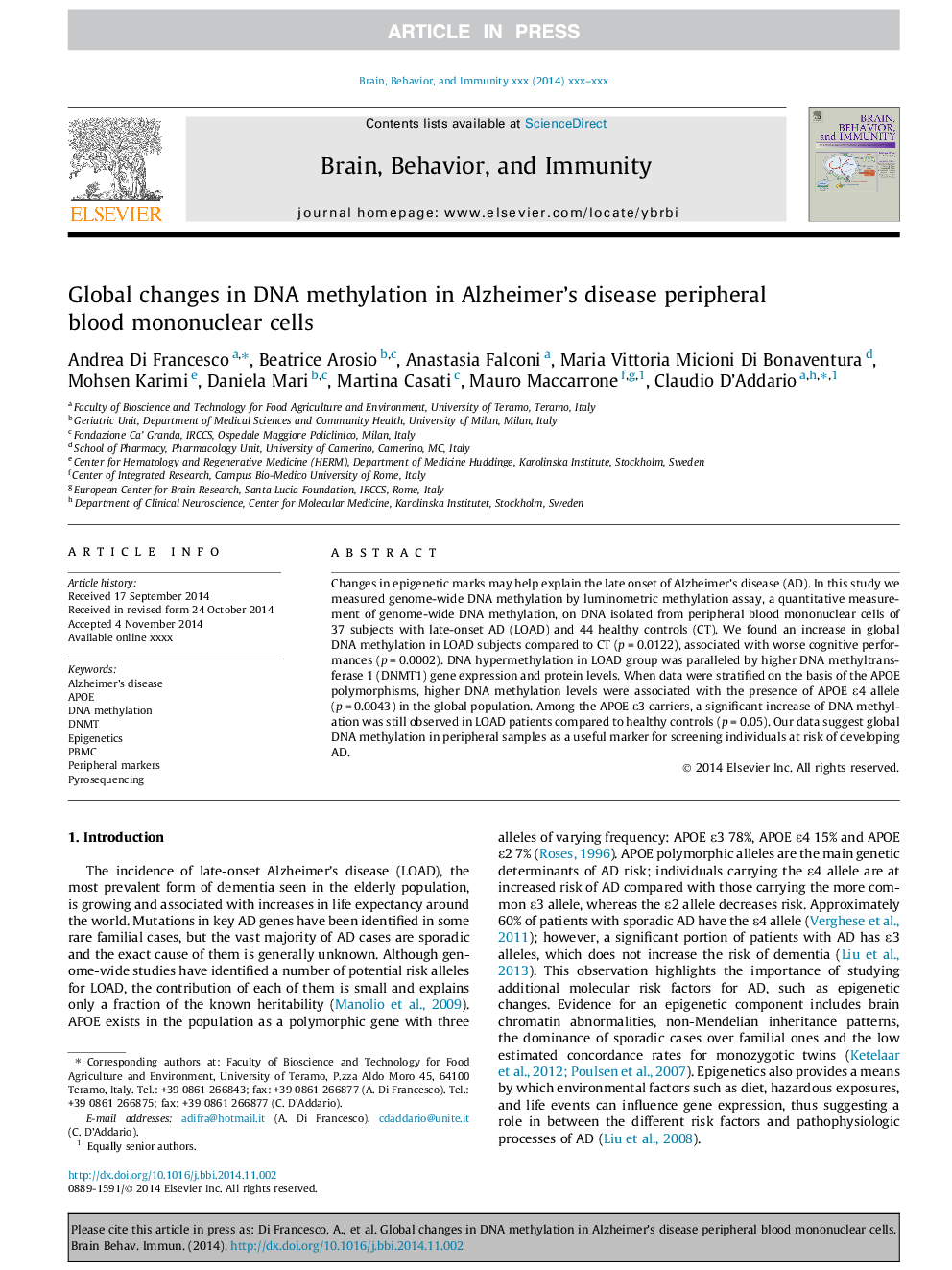| Article ID | Journal | Published Year | Pages | File Type |
|---|---|---|---|---|
| 7281257 | Brain, Behavior, and Immunity | 2015 | 6 Pages |
Abstract
Changes in epigenetic marks may help explain the late onset of Alzheimer's disease (AD). In this study we measured genome-wide DNA methylation by luminometric methylation assay, a quantitative measurement of genome-wide DNA methylation, on DNA isolated from peripheral blood mononuclear cells of 37 subjects with late-onset AD (LOAD) and 44 healthy controls (CT). We found an increase in global DNA methylation in LOAD subjects compared to CT (p = 0.0122), associated with worse cognitive performances (p = 0.0002). DNA hypermethylation in LOAD group was paralleled by higher DNA methyltransferase 1 (DNMT1) gene expression and protein levels. When data were stratified on the basis of the APOE polymorphisms, higher DNA methylation levels were associated with the presence of APOE ε4 allele (p = 0.0043) in the global population. Among the APOE ε3 carriers, a significant increase of DNA methylation was still observed in LOAD patients compared to healthy controls (p = 0.05). Our data suggest global DNA methylation in peripheral samples as a useful marker for screening individuals at risk of developing AD.
Related Topics
Life Sciences
Immunology and Microbiology
Immunology
Authors
Andrea Di Francesco, Beatrice Arosio, Anastasia Falconi, Maria Vittoria Micioni Di Bonaventura, Mohsen Karimi, Daniela Mari, Martina Casati, Mauro Maccarrone, Claudio D'Addario,
